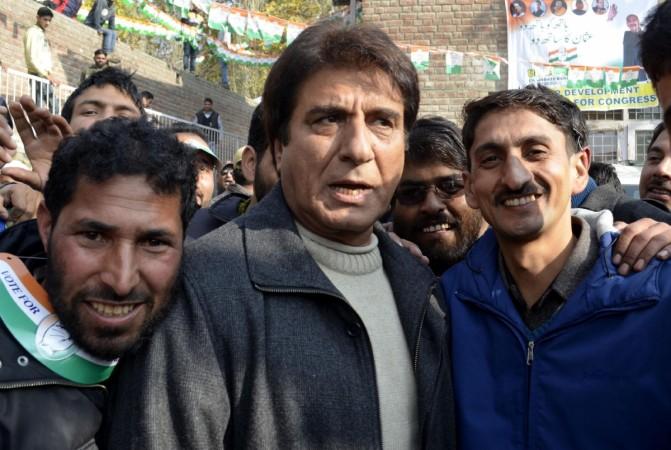
The Congress' style of functioning is unique. After the debacle in four of five states (the party could not even finish off the task in two states despite getting most seats), several leaders have come forward to offer resignations, apparently to 'shield' Rahul Gandhi, their vice president.
Take for example, Raj Babbar. The actor-politician, who is the Congress' chief in Uttar Pradesh where the party's tally was reduced to a one-digit figure, said after the dismal performance that he takes "moral responsibility" for the party's defeat. He said he "could not live up to the expectations".
Earlier this week, BK Hariprasad, Congress' general secretary and in-charge of Odisha, resigned citing their defeat in the recent rural elections in Odisha. Although Rahul reportedly did not accept his resignation as the general secretary, Hariprasad was facing dissent from the party's Odisha unit. Similarly, Sanjay Nirupam, Congress's Mumbai unit chief, resigned after the Grand-Old Party was decimated in the recent civic polls. He indicated at 'traitors' who wanted to see him lose. Digvijay Singh, the veteran leader who failed to see the Congress through despite the party finishing within a striking distance of forming the government in Goa, did not quit, but also did not restrain himself from expressing disappointment.
Why do these leaders turn moralistic after the defeat and not before?
The eagerness to 'sacrifice' themselves shown by a number of Congress leaders may make it seem that they are really sorry for their party's shocking state. But the reality is that these leaders have offered to resign to please the Gandhis so that they can somehow cling on to their posts, even if that means a complete annihilation of the party.
The petty leaders (if they can be called leaders at all) in the Congress feel that the Gandhis, irrespective of their failure against the Narendra Modi blitzkrieg, are the only hope for the party's survival. The 'first family' is the pivot around which they revolve and hence, if there are signs of a dissent against the Gandhis and an implosion, these leaders will be the first to perish. The party's culture of sycophancy prevails strongly even in the days of great stress.
The Congress has found itself trapped in a vicious cycle
If these useless leaders keep trying to please the high command by 'offering to quit' and the latter refuses to accept their decision thinking it would be demoralising for the party, the impending danger would only magnify – both for the party and the Gandhis. It's a tragedy that the top leadership cannot see beyond the coterie and sycophants that have surrounded it over the years.
Some people in the Congress can also see the writing on the wall; will they be heard?
It is not that the Congress doesn't have people who can see the writing on the wall. Two former UPA ministers – Kishore Chandra Deo and Ashwani Kumar – have blasted the party's dangerous levels of sycophancy after the latest electoral disaster. They have said that Rahul needs to get rid of "a dozen people who have no accountability" around him and that the party should genuinely admit to the mistakes it has been making and try to mend things. At the moment, neither of the two is happening.
Former party MP Priya Dutt has also taken on the party's evils, saying that it has been suffering from an "auto immune disease" and said a team effort is needed to rebuild the party and it is not just about one person. Another disappointed leader said that those who are offering to quit are doing so to get an emotional benefit so that they continue to enjoy their positions. He said if Rahul really wants to overhaul the party, he has to act tough or else, things will never take a U-turn.
Either sycophants or the party will survive
The Congress, for its own sake, has to decide whether it needs the sycophants to bolster the top leadership's short-term 'feel good' feeling or heed to the tough advice that some of its old-timers are offering to survive in the long run.
It again falls back on Rahul Gandhi's shoulders. But then the man, as we have seen often, is too butter-shouldered.









